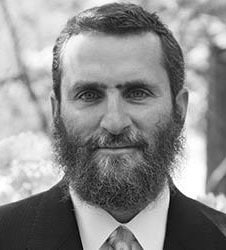Birthright Israel is now 11 years old and has brought some 300,000 young Jews to Israel. I recently led another Birthright trip for Mayanot, one of its best and most professional providers, and learned a great deal about how a spectacular program could be made even better.
I knew of Birthright at it conception. Its co-founder, Michael Steinhardt, was sharing with me the scope of the idea as he traveled with Charles Bronfman around the United States raising large sums to get the idea off the ground. It’s one thing for a rich man to give money. It’s an entirely different level of commitment when he traverses city to city soliciting friends and acquaintances. It solidified in my mind that first, Michael was a great man, and that second, Birthright is something to which I should devote myself.
So I packed up myself and my wife and travelled to Israel for our second Birthright jamboree. And boy was it a celebration. Ten days of no sleep and constant discussion, laughter and tears. Inspiration from watching young Jews connect to their land and their people and pain at hearing the participants who had lost parents, seen their families torn asunder by divorce, and found comfort, for the very first time, in knowing they were a wider part and an eternal people. In life we all search for a place called home, an identity, and a place to belong. No Jewish organization on earth provides it more inspirationally than Birthright.
Still, it can be made better.
Here is how:
1. On day one when you read all the rules to the newly arriving participants, don’t treat them like children. These are young adults. Threatening them to be dumped from their trip if they get blotto presupposes their hearts can’t be touched. This is the speech that should be given: “Welcome to Israel. You are home. We are thrilled to welcome you back to the Jewish family. Please understand that unlike the Bahamas, Israel is surrounded by those who believe Jewish people should have no home. It is protected by a nation of humble men and women who serve their country for three years in their teens and watch as loved ones sometimes never come back from war. What we’re saying is, you’re in a sacred place. Please allow your conduct at all times to reflect the dignity of this magical country whose democracy was carved out in the harshest of neighborhoods. These Israelis you see around you, they do not earn the same amount of money as Americans. Yet, they contribute one third of the entire budget that allows you to come to Israel as a free gift. Show them your appreciation by drinking in moderation, partying amid a sense of purpose, and at all times, your thirst, not for booze, but to drink in all that Israel is. If you stay up so late at bars that you can barely function the next day, you are showing the Israeli people that you have no desire to understand their story and their history, something which, as a Jew, you are a part. We know you understand and we’re sure you’ll cooperate. Get ready for a life-changing experience.”
2. Birthright needs substance, and I suggest a stronger values-based component. A young woman sitting next to me on the plane got all excited about our conversation until she discovered that she was with a different Birthright provider. She had shunned the group I was with, all non-observant Jews, because she read that the provider was Orthodox. Here, a young woman who feared religion was denied the pleasure of my engaging company (please stop the laughter and show some dignity) because she’s afraid of religion being shoved down her gullet. Now, of course Birthright should not be in the business of peddling religion so much as attachment to Israel and Jewish identity. But that should not make the trip free of substance. The impact I was able to make on my group stemmed from engaging them in values-based discussion that related to everything they saw. You’re at Yad Vashem: 6 million Jews dead, murdered. Question: Anyone here believe in vengeance? Hands go up. OK, what about forgiveness. Can we forgive something this gruesome? Jesus said love your enemies? Is that something we Jews ought to embrace? Which are the real Jewish values? To be sure, the many speeches I gave were delivered amid healthy doses of humor (you can watch them on YouTube and please try and laugh with me rather than at me). But I was intent on making the Birthright experience not just about Jewish history and geography, but about Jewish values and Jewish wisdom.
3. Expect something in return. I know that the founders of Birthright, Michael included, correctly insist that this is a gift and a gift comes with no strings attached. But doesn’t a gift usually inspire a feeling of reciprocity? I would require all Birthright participants to give one third of what they received, three days, of volunteer work to the Jewish communal charity of their choice back home. They could vacuum the floors of their synagogue, serve as counselors in a camp or work in a local hospital. This would create a mini Jewish Peace Corps, for just three days, inspired by Birthright. Everyone knows you have to give something back. To those to whom much is given, surely something very minimal should at least be expected.
4. Continuity, continuity, continuity. Its absence is the biggest problem of all for Birthright. The trip is so inspirational, so moving, so transformative, that it inspires many to ask, as John did on my trip, “How do I keep this feeling once I return.” I responded, “You can’t.” Emotions by their very nature are ephemeral. They don’t last. What does last are actions inspired by emotions that in turn continue the cycle by further inspiring deeper feelings. In other words, when you get home, you need to do something about your feelings. Your hands need to mold your heart. Hence, my suggestion. Birthright must immediately hire the 30 most charismatic Jewish personalities it can find, and match them with the 30 best administrators it can find. Give them a limited budget to get started as, in 30 cities and towns across America, they begin to provide a monthly large educational event, defined by big-name speakers, twice-monthly Shabbat meals and a weekly class and discussion, coordinated by this duo. You may not get all the alums to participate. But even a third would mean a transformation of the face of young American Jews.
Rabbi Shmuley Boteach is a writer and broadcaster who did not drink on his Birthright trip and has 40 young Jews to back him up, because the evidence he has against them is so much more serious by comparison. So can’t we all just get along? Follow him on Twitter @RabbiShmuley.























 More news and opinions than at a Shabbat dinner, right in your inbox.
More news and opinions than at a Shabbat dinner, right in your inbox.